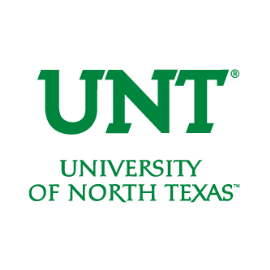University of North Texas’ Center for Logistics Education and Research and Jim McNatt Institute for Logistics Research Credit One Network for Implementing Science of Theoretical Minimums
 Dallas, TX–October 25, 2016 —A new study from the University of North Texas (UNT) acknowledges One Network Enterprises’ Real Time Value Network™ for leveraging a new inventory management strategy called the Science of Theoretical Minimums (STM) that minimizes inventory by reducing physical and informational lead times from the customer back through the entire value chain. The Real Time Value Network transforms the supply chain by empowering all parties to focus on the customer and lowering costs by eliminating information delays across the extended supply chain.
Dallas, TX–October 25, 2016 —A new study from the University of North Texas (UNT) acknowledges One Network Enterprises’ Real Time Value Network™ for leveraging a new inventory management strategy called the Science of Theoretical Minimums (STM) that minimizes inventory by reducing physical and informational lead times from the customer back through the entire value chain. The Real Time Value Network transforms the supply chain by empowering all parties to focus on the customer and lowering costs by eliminating information delays across the extended supply chain.
To learn more about the Science of Theoretical Minimums and how this scientific tool can be used to identify, focus, and create value to the supply chain, sign up for a complimentary webinar series by visiting http://go.onenetwork.com/theoretical-minimums-digital-supply-chain.
“One Network’s leadership and dedication to creating the next generation digital supply chain is unsurpassed.”
Dr. David Nowicki, Director, Center for Logistics Education and Research at the University of North Texas
For years, supply chain executives have struggled to reduce inventory without affecting customer service levels or shifting cost to other supply chain partners. More importantly, they have focused their attention on reducing either forecast errors or physical lead times. The latest findings from the ongoing research partnership between UNT and One Network has, for the first time, identified how organizations can apply a quantitative approach to incorporate information lead times in supply chain designs in order to drive innovation and achieve digital transformation objectives.
“Our original research demonstrated that the application of real time, demand driven tools can reduce inventory, create systemic performance improvements and on-going cost savings,” said Dr. David Nowicki, Director, Center for Logistics Education and Research at the University of North Texas. “One Network’s leadership and dedication to creating the next generation digital supply chain is unsurpassed. By employing the principles of STM, One Network’s Real Time Value Network is reducing information lead times and creating value by enabling a network of trading partners to transform theoretical strategies into reality.”
In the simplest form, STM provides a methodical approach and accompanying governance structure that allows managers to uncover fundamental latency and resulting cost, which remains in even the most aggressively managed supply chains. The key to STM is the development of a method to define supply chain-specific minimum resource requirements such as time, inventory, transportation and correlate those requirements using an advanced algorithm based tool to potential cost avoidance.
According to UNT researchers, One Network – the global provider a multi-party network platform and services – is applying the new Science of Theoretical Minimums in order to help businesses achieve an effective digital transformation. Unlike other strategies, managing to theoretical minimums reduces the total supply chain cost instead of simply pushing costs onto weaker suppliers and reveals how much lost sales opportunity and costs are buried in the end-to-end supply chain. This monetization of delay cost provides supply chain executives with a clear picture on where to focus their efforts and identifies areas for improvement.
“Anyone in this business knows that time is money, and for years people have been trying to find new ways to reduce costs and get products to market faster,” said Greg Brady, CEO of One Network. “The Science of Theoretical Minimums is the first research that provides a simple and practical way to guide digital transformation of supply chains. One Network’s Real Time Value Network was built using these principles which enables our customers to make immediate customer focused cost/benefit decisions that remove expensive delays from the supply chain and improve bottom-line profits.”
[bctt tweet=”News: @onenetwork recognized by @UNTnews study for creating value to the Supply Chain #supplychainmanagement #supplychain #multipartynetworks” username=”onenetwork”]About One Network Enterprises
One Network is bringing the network to connect companies and their entire ecosystem, to serve the customer. Founded in 2002, One Network offers patented solutions to multi-party business, including supply chain management. One Network’s cloud platform, the Real Time Value Network™, eliminates the traditional divide between planning and execution and enables visibility and data, to flow across the entire value chain of business partners – in real time. Additionally, One Network offers PaaS solutions and developer tools that enable organizations to design, build and run multi-party applications. Leading organizations from around the world from nearly every industry have joined One Network, helping to transform industries from CPG, Healthcare, Automotive, Retail, Logistics and Public Sector and Defense. Headquartered in Dallas, One Network also has offices in China, Europe, and India. For more information, please visit www.onenetwork.com.
About Center of Logistics Education and Research
The mission of the Center of Logistics Education and Research at the University of North Texas is to facilitate the formulation and implementation of research and education necessary to produce effective strategies and qualified people to meet the rapidly changing knowledge demands of the 2000’s. For more information, please visit www.cob.unt.edu/logisticscenter.
About McNatt Institute for Logistics Research
The institute’s research team provides the capability to develop effective solutions to complex problems confronting public and private organizations. The research team conducts ongoing research in a wide array of areas related to logistics and transportation ranging from the modeling and simulation of logistics systems, transportation planning and management, the application of geographic information systems, economic impact studies, site selection, vehicle routing, technology development and application, and the engineering of responsive and sustainable systems. For more information, please visit logisticsresearch.unt.edu.

